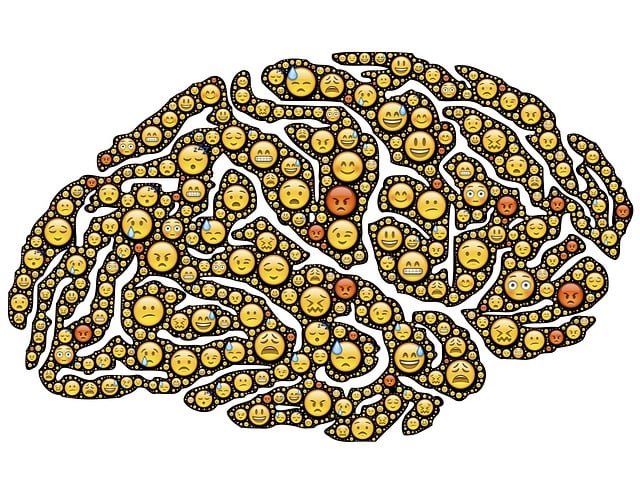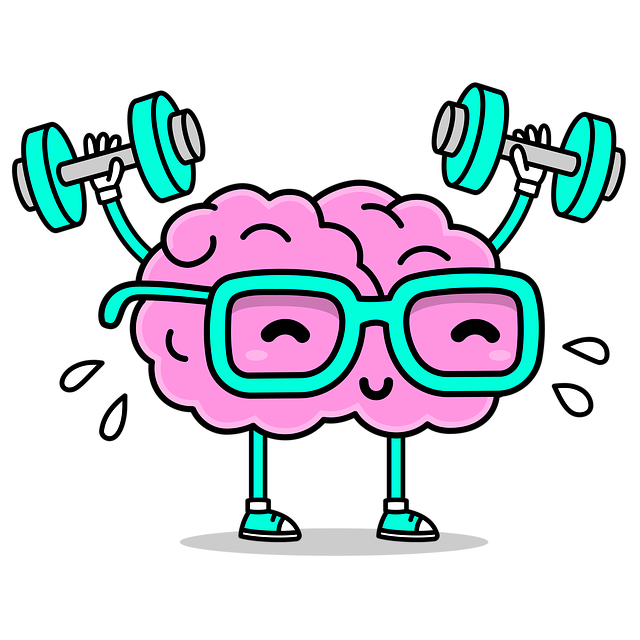Mental wellness involves managing thoughts, feelings, and behaviors for a fulfilling life, with journaling emerging as a modern tool supported by Lone Tree American Sign Language Therapy (LTS). Journaling enables individuals to explore their inner worlds, gain clarity, and foster self-awareness—key components of a healthy mind. LTS integrates journaling exercises with Mind Over Matter principles, facilitating crisis intervention, empathy-building, and deeper understanding in a safe space for processing challenging situations. This practice promotes emotional regulation, improves cognitive skills, and serves as mindfulness meditation, making it beneficial for enhancing mental wellness.
“Unwind your mind and embark on a journey of self-discovery through mental wellness journaling. In today’s fast-paced world, prioritizing cognitive health is paramount. This comprehensive guide explores the synergistic relationship between mental wellness and journaling, delving into its benefits for cognitive function. We provide practical steps to create a sanctuary for your thoughts, offer tailored techniques for American Sign Language (ASL) users, and share insights on interpreting journal entries with Lone Tree American Sign Language Therapy. Prepare to unlock your mind’s potential.”
- Understanding Mental Wellness and Journaling: A Powerful Duo
- The Benefits of Journaling for Cognitive Health
- Creating a Therapeutic Space: Setting Up Your Journal
- Capturing Your Thoughts: Techniques and Prompts for ASL Users
- Reflecting and Growing: Interpreting Journal Entries with Lone Tree American Sign Language Therapy
Understanding Mental Wellness and Journaling: A Powerful Duo

Mental wellness is a multifaceted aspect of our overall well-being, encompassing emotional, psychological, and social health. It’s about understanding and managing your thoughts, feelings, and behaviors to lead a fulfilling life. Journaling, an ancient practice, has emerged as a powerful tool to support mental wellness in the modern world. By putting pen to paper (or fingers to keyboard), individuals can explore their inner worlds, gain clarity, and foster self-awareness—all essential components of maintaining a healthy mind.
Pairing Mental Wellness with Journaling creates a dynamic duo capable of addressing various aspects of personal growth. For instance, Lone Tree American Sign Language Therapy utilizes journaling exercises to encourage reflection on one’s experiences, emotions, and thoughts. This practice aligns with Mind Over Matter principles, empowering individuals to take control of their mental states. Crisis intervention guidance and empathy-building strategies can also be incorporated into journaling routines, offering a safe space for processing challenging situations and cultivating deeper understanding and connection with oneself and others.
The Benefits of Journaling for Cognitive Health

Journaling has emerged as a powerful tool for enhancing mental wellness, offering individuals a chance to explore their thoughts and emotions in a safe and private space. For those seeking American Sign Language (ASL) therapy or support, incorporating journaling into their routine can be an incredibly beneficial practice. The act of writing down experiences, feelings, and reflections allows individuals to gain valuable insights into their cognitive processes.
This simple yet effective exercise promotes self-awareness by encouraging a deeper connection with one’s mind. It aids in identifying triggers for stress or anxiety, fostering better emotional regulation. Additionally, regular journaling can improve memory, focus, and decision-making skills. By reviewing past entries, individuals can track their progress, recognize patterns, and employ conflict resolution techniques more effectively. Moreover, it serves as a form of mindfulness meditation, allowing the writer to stay present, calm, and focused on the here and now.
Creating a Therapeutic Space: Setting Up Your Journal

Creating a dedicated space for your journal is an essential first step in this wellness journey. Imagine it as your own sanctuary—a quiet, comfortable corner where you can retreat and reflect. This therapeutic space should be free from distractions, allowing you to focus on your thoughts and feelings. Picture a cozy area with soft lighting, perhaps near a window that lets in the soothing glow of natural light. You might choose a desk or table as your journal stand, adorned with items that inspire calmness—a potted plant, a crystal, or a picture that resonates with your inner strength.
In this tranquil setting, you’ll begin to cultivate mindfulness and emotional regulation, two powerful tools in the Mind Over Matter principles of Lone Tree American Sign Language Therapy. Each entry becomes an opportunity to explore and document your experiences, thoughts, and emotions—a chance to develop your inner strength and a deeper understanding of yourself. This practice is about embracing vulnerability and allowing space for growth and healing.
Capturing Your Thoughts: Techniques and Prompts for ASL Users

Journaling is a powerful tool for self-expression and reflection, especially beneficial for individuals looking to enhance their mental wellness. For American Sign Language (ASL) users, this practice can offer a unique and creative outlet to capture their thoughts and emotions. The process involves translating internal experiences into words or visual art, which can be particularly therapeutic.
Lone Tree American Sign Language Therapy suggests incorporating specific techniques to make journaling accessible and engaging. Prompts like “Describe your day in signs” or “What moments made you feel proud today?” encourage users to narrate their experiences. Visual aids, such as drawing the emotions depicted in a particular sign, can also be helpful. This approach not only improves self-expression but also contributes to the development of confidence and self-esteem. By regularly documenting thoughts, ASL users can better understand their feelings and identify potential burnout prevention strategies, especially relevant for healthcare providers who often face high-stress situations.
Reflecting and Growing: Interpreting Journal Entries with Lone Tree American Sign Language Therapy

Mental wellness journaling can be a powerful tool for reflection and growth, especially when combined with therapeutic practices like those offered by Lone Tree American Sign Language Therapy (LTS). LTS provides unique trauma support services that include social skills training and mindfulness meditation techniques tailored to individual needs. By interpreting journal entries, therapists at LTS help clients delve deeper into their thoughts and emotions, fostering a greater understanding of themselves. This process encourages personal development and allows individuals to identify patterns or triggers that may be impacting their mental wellness.
Through regular reflection on written words, one can gain valuable insights into their experiences. Journaling enables individuals to express complex feelings and memories, serving as a safe space for exploration. Lone Tree ASL Therapy guides clients in deciphering these entries, offering a unique perspective on personal growth journeys. This approach ensures that each entry is not just a collection of words but a living tapestry of emotions, memories, and lessons learned, ultimately enhancing one’s mental wellness.
Mental wellness journaling is a simple yet profound practice that, when combined with strategies like those offered by Lone Tree American Sign Language Therapy, can significantly enhance cognitive health and personal growth. By creating a dedicated space and employing various techniques, individuals can unlock the therapeutic benefits of self-expression through writing. Whether capturing thoughts or reflecting on experiences, this practice empowers users to navigate their mental wellness journey with increased awareness and resilience.









